Buddhists and Christians: demonstrations, processions, prayers for peace and against the coup (PHOTO)
Buddhist monks in Pegu and Pakokku pray and march to protect the people from darkness. In Kengtung, Christians in procession with the statue of Our Lady. In Mandalay, the bishop's evening of prayer with priests and sisters. The religious of Saint Joseph of the Apparition distribute food and beverages to the demonstrators. The junta continues with the arrests of democratic personalities. Charges against the Chinese embassy of importing weapons for the junta. Biden launches new sanctions against generals.
Yangon (AsiaNews) - For the sixth consecutive day, demonstrations and strikes continue in the country to contest the February 1 military coup and arrest of the democratic leader Aung San Suu Kyi (the "Lady") and the president Win Myint.
In the economic capital, Yangon, doctors, teachers, students and workers are asking state employees to carry out “civil disobedience” by refusing to go to work. There are also demonstrations in front of the US and Chinese embassies to demand international engagement against the junta.
Protesters outside the Beijing embassy (in Yangon) accuse China of supporting the military even through importing weapons.
Yesterday, the new US President Joe Biden once again called for political leaders and activists to be released and announced sanctions against the Burmese generals involved in the putsch, first of all Min Aung Hlaing, who took power and who is already targeted by sanctions for the violence against the Rohingya.
At the same time, the repression continues: last night, a close collaborator of Aung San Suu Kyi, Kyaw Tint Swe, was arrested along with four other personalities of the democratic government.
Members of the Electoral Commission, who confirmed the victory of the National League for Democracy (Ndl), the “Lady’s Party”, were also arrested. It is estimated that several hundred people have been put in prison these days.
What is increasingly evident is that the demonstrations against the coup are not just the prerogative of the members of the NDL, but involve all social strata and in particular the religious world.
Today 11 monks from the Buddhist monastery of Pegu, 80 km north-east of Yangon, issued an open letter in which they urge the population to hold high "the light of good" and dharma, and to reject "the path of evil”, which drags the country into darkness and destruction.
Two days ago in Pakokku (in the central Magway region), hundreds of Buddhist monks launched a march to urge non-violence and peace for the country. Pakokku is known for many monasteries.
It was from here - as well as from Yangon – that the “saffron uprising” against the junta rose in 2007 - the demonstrations of Buddhist monks against the military junta. Suffocated through bloodshed, the uprising helped accelerate the transition to democracy.
One young monk, interviewed by AsiaNews, explains: “Every day we pray by lighting candles and incense, so that the people are protected from disaster, even from what is happening in these days. We do not want the people to suffer, without peace and in violence.”
Demonstrations are also multiplying among Catholics. After the strong criticism directed at the bishops for their communiqué which prohibited demonstrations with religious symbols, various religious institutes and faithful organized rallies, marches, prayer meetings.
The bishop of Mandalay, Msgr. Marco Tin Win, who days ago went out on the street to support pro-democracy demonstrators, raising the three finger salute, last night organized a moment of prayer in front of the Cathedral of the Sacred Heart together with priests and nuns for peace and justice in Myanmar.
In Kengtung (Shan State), the faithful, priests and nuns carried the statue of the Madonna in procession, reciting the rosary and praying for peace in Myanmar.
The Sisters of St. Joseph of the Apparition are even more explicit: in various districts of Yangon and in other cities they show closeness to the population by distributing snacks, coffee and other drinks to help demonstrators to "recharge their energy and their voice". They affirm this is putting into practice the teachings of the Second Vatican Council contained in Gaudium et Spes: "The joys and hopes, sadness and anguish of today's men, especially the poor and all those who suffer, are pure the joys and hopes, sadness’s and anxieties of Christ's disciples "(1: 1).






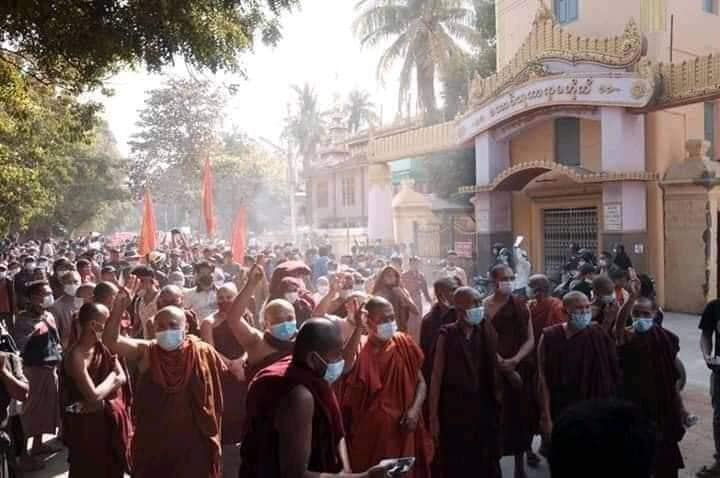
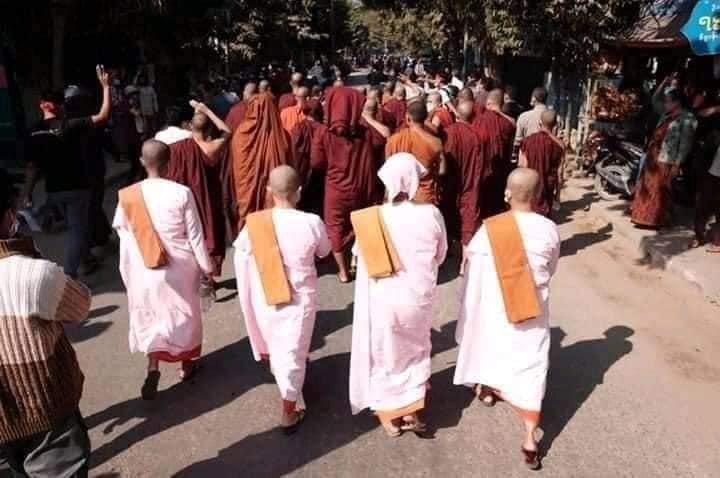
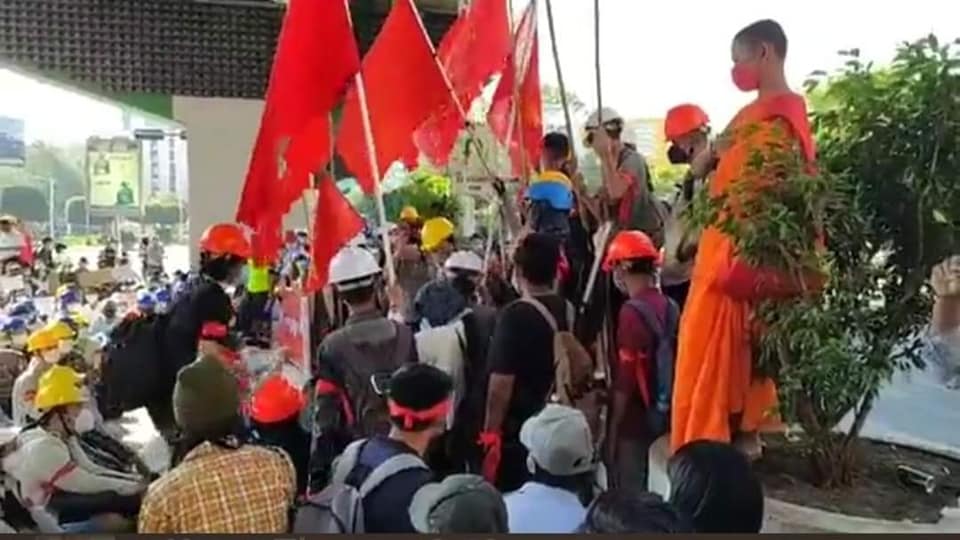
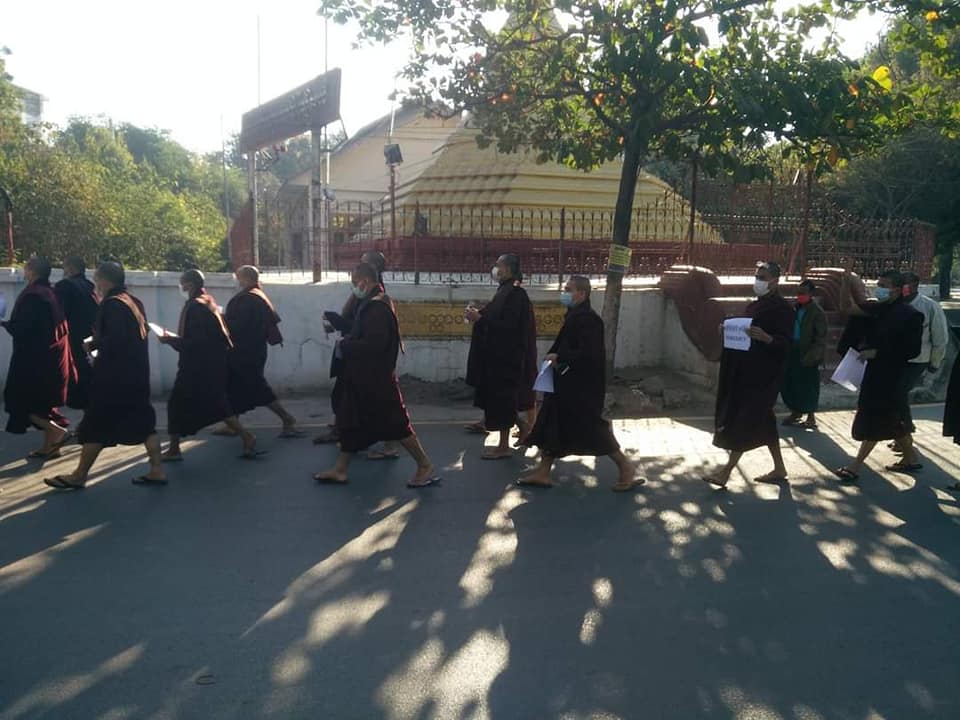
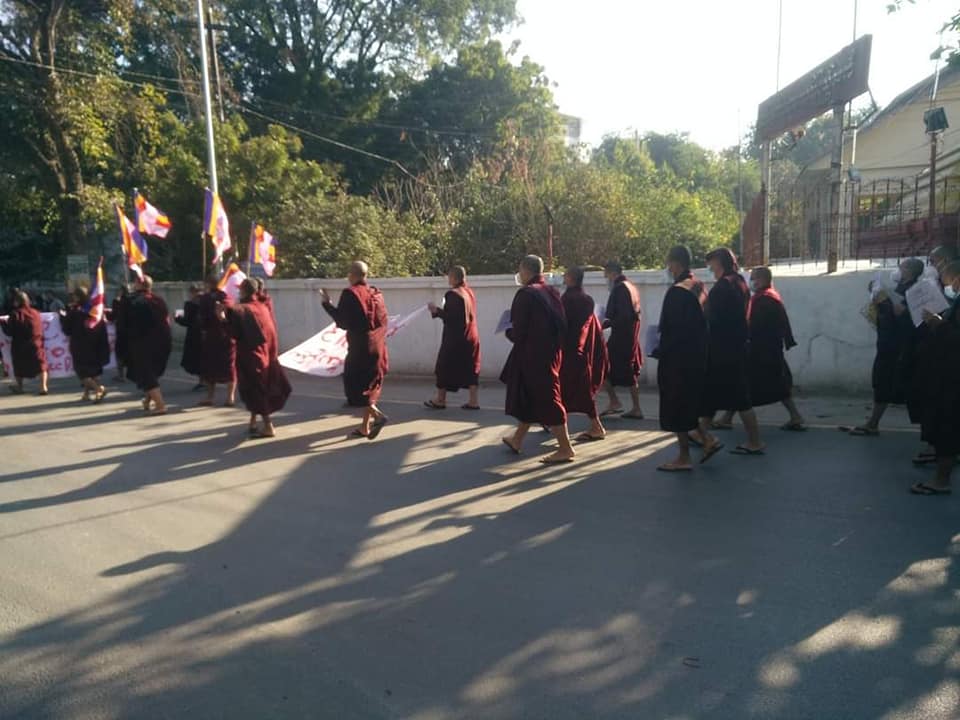
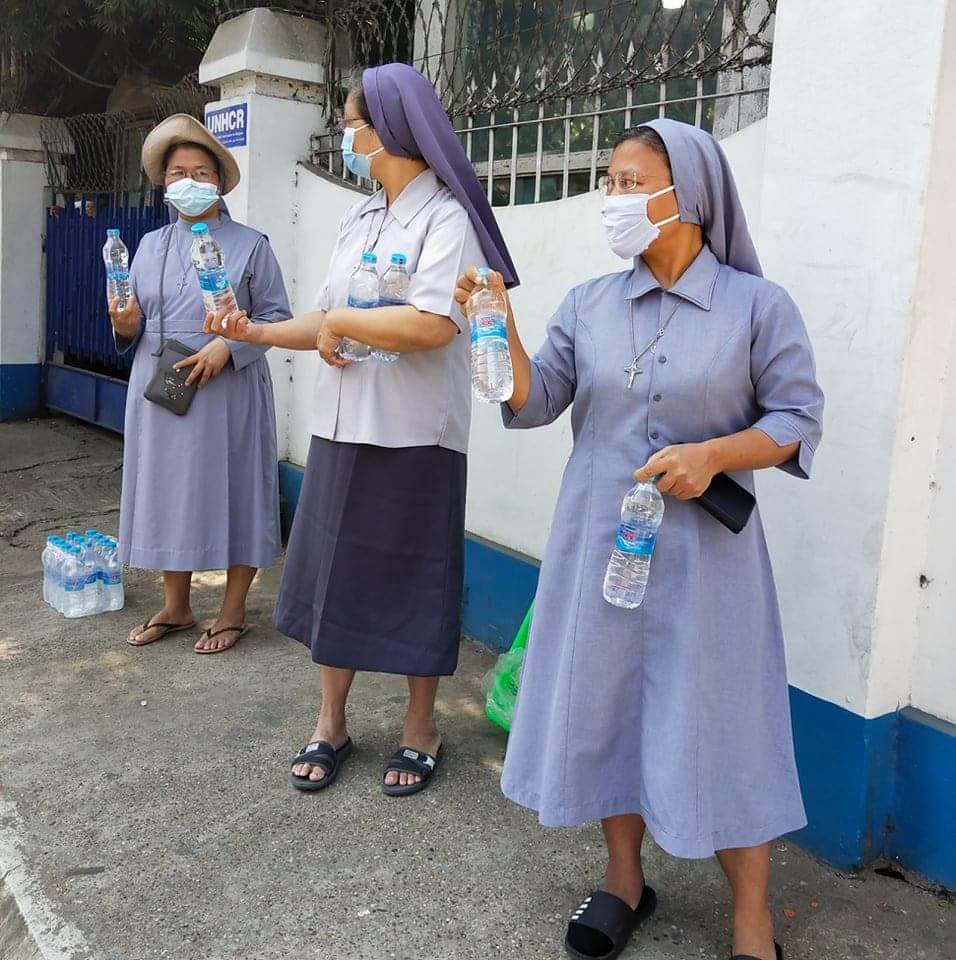
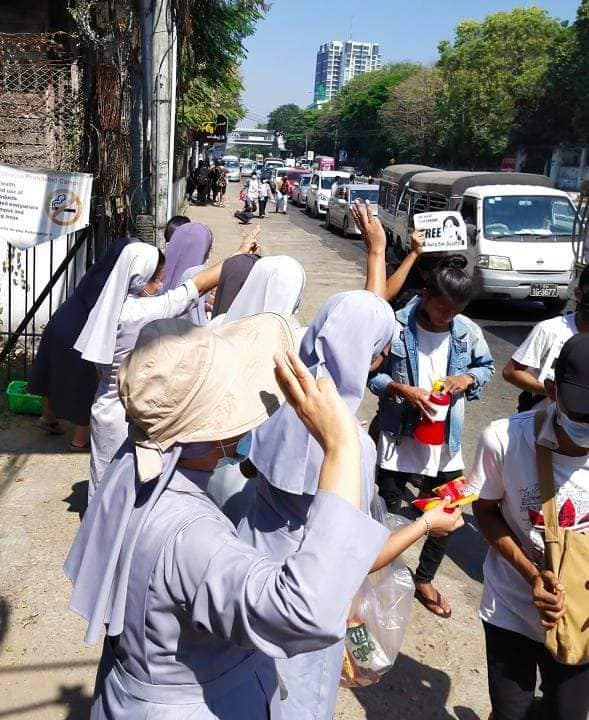
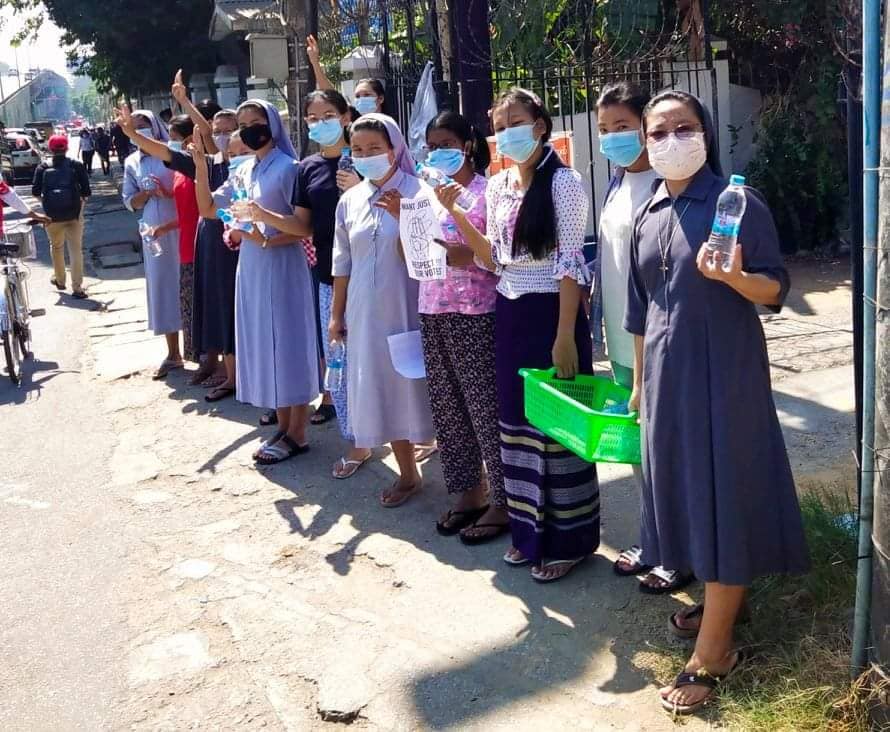
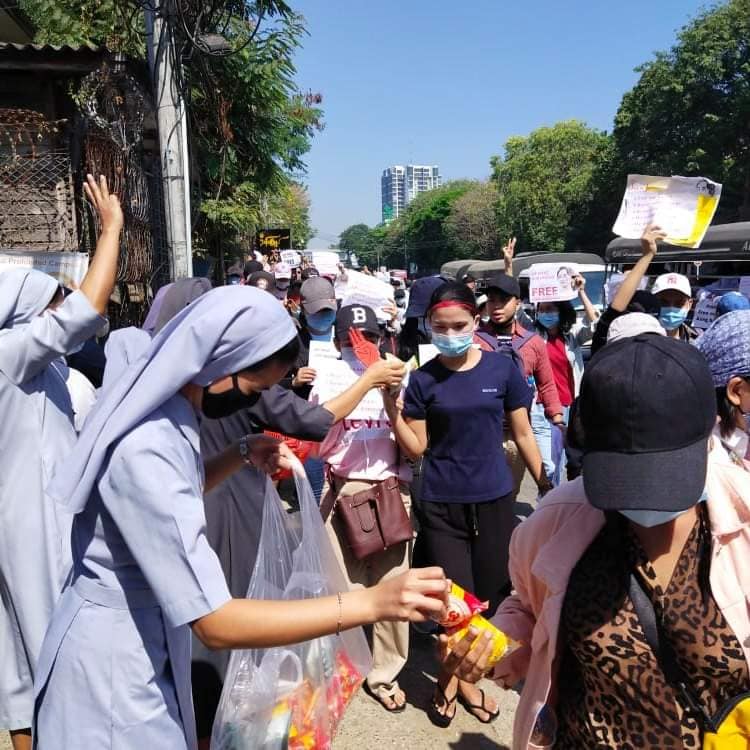
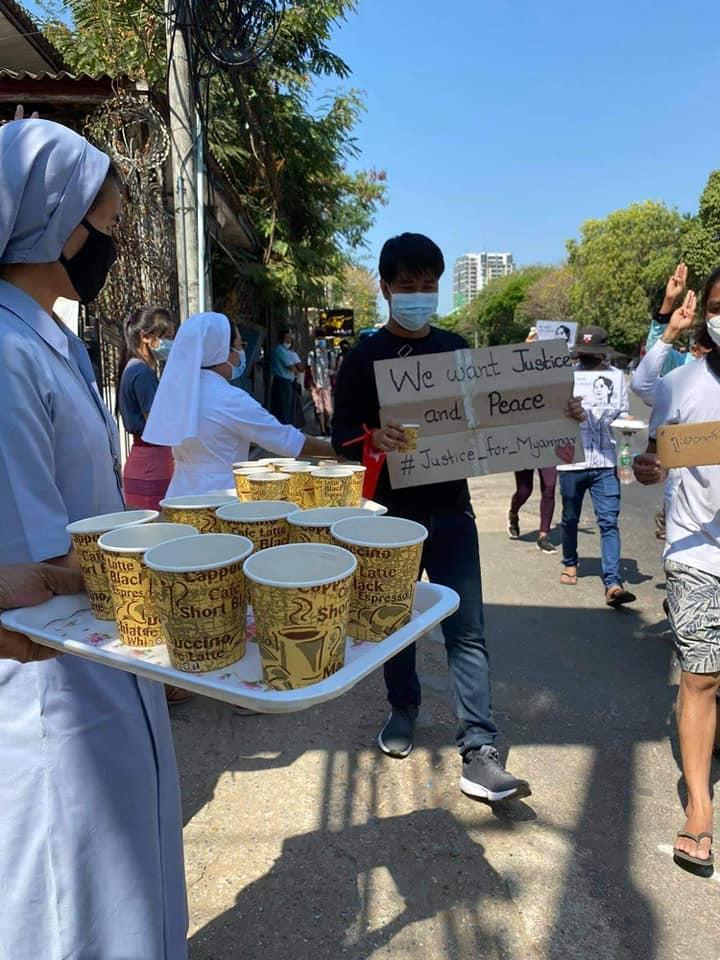
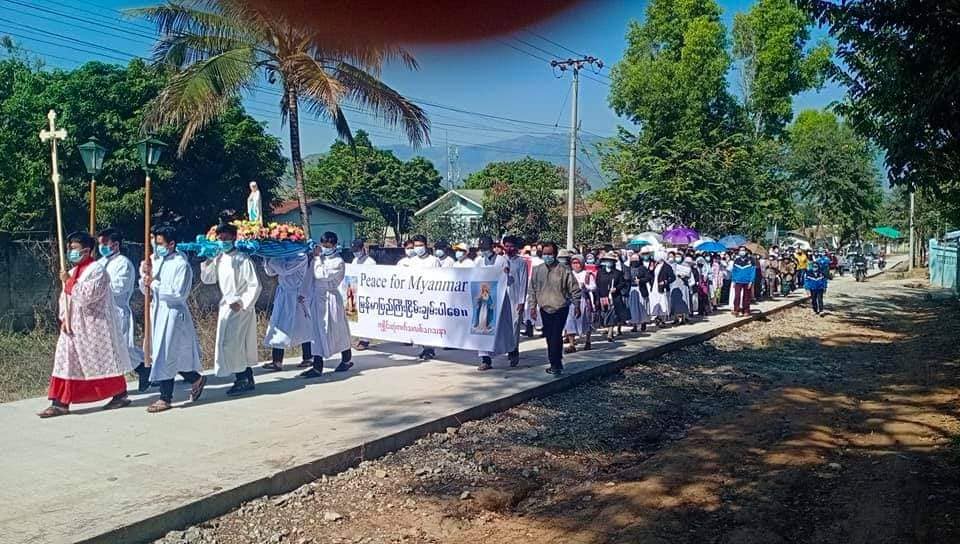
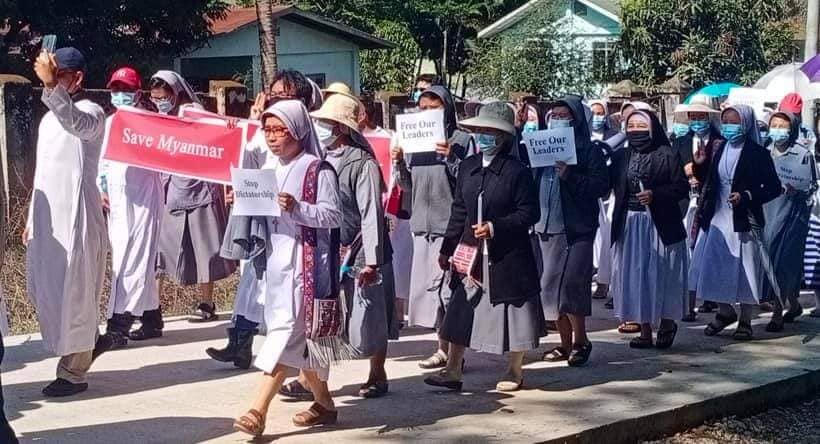
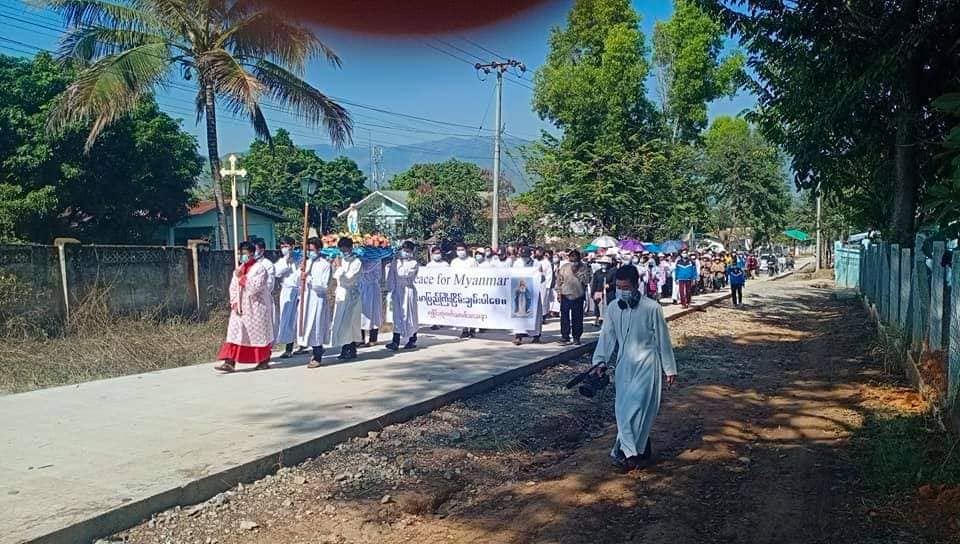
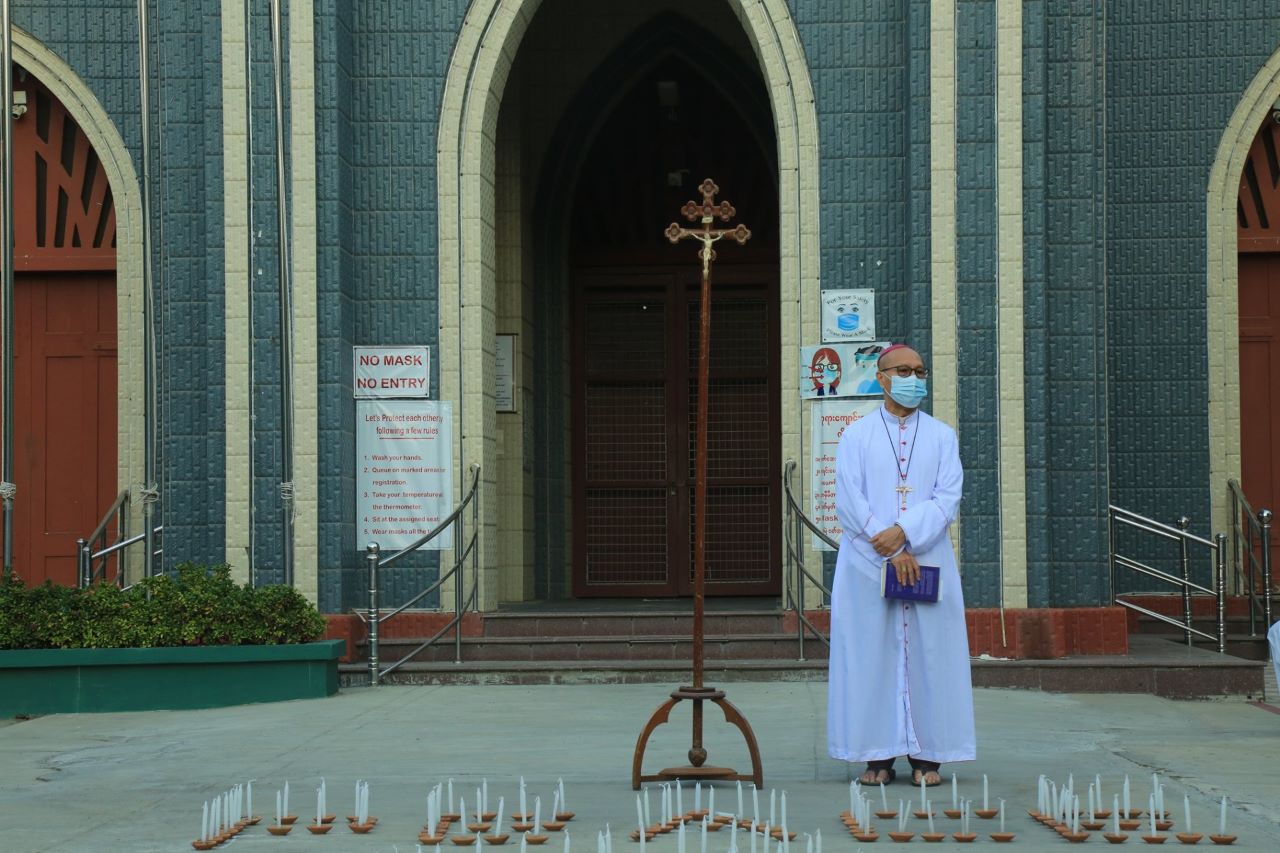
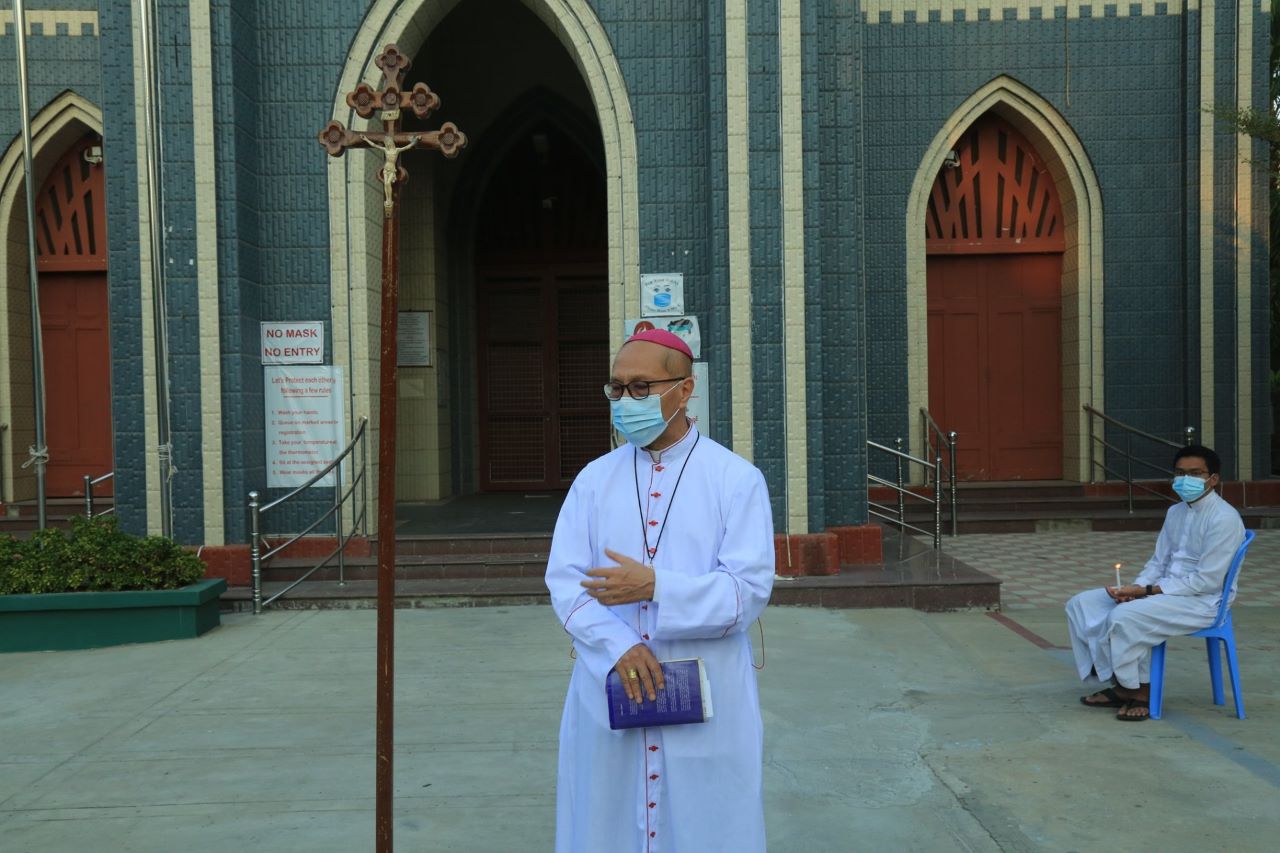

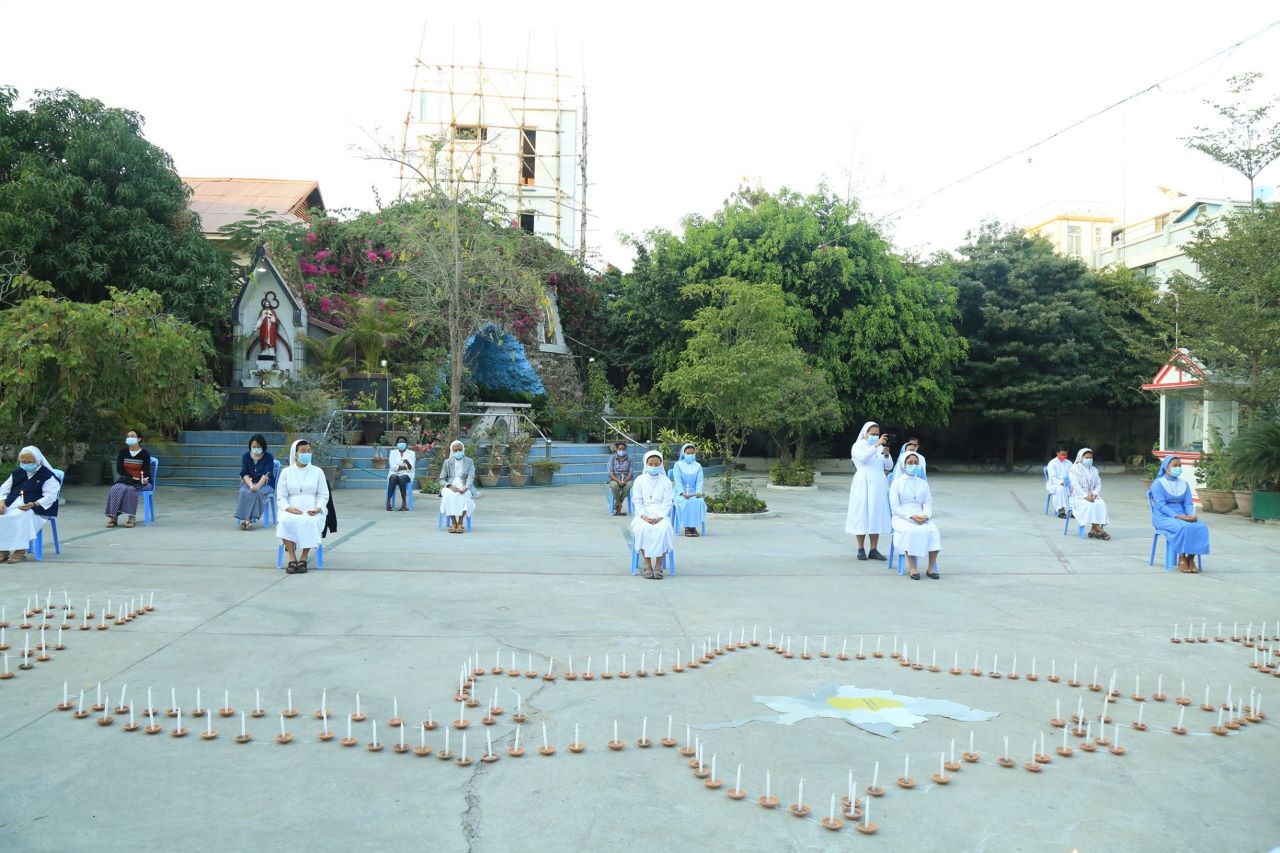
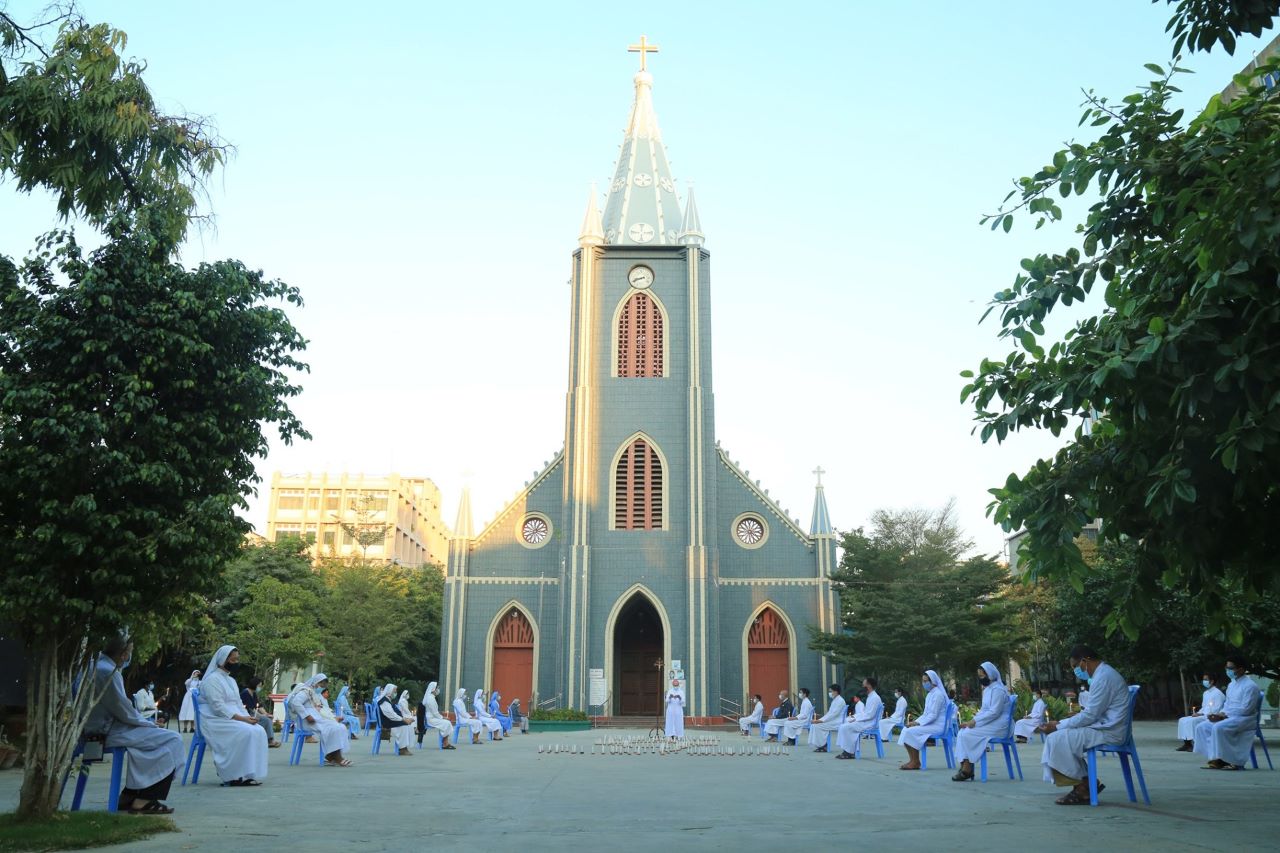
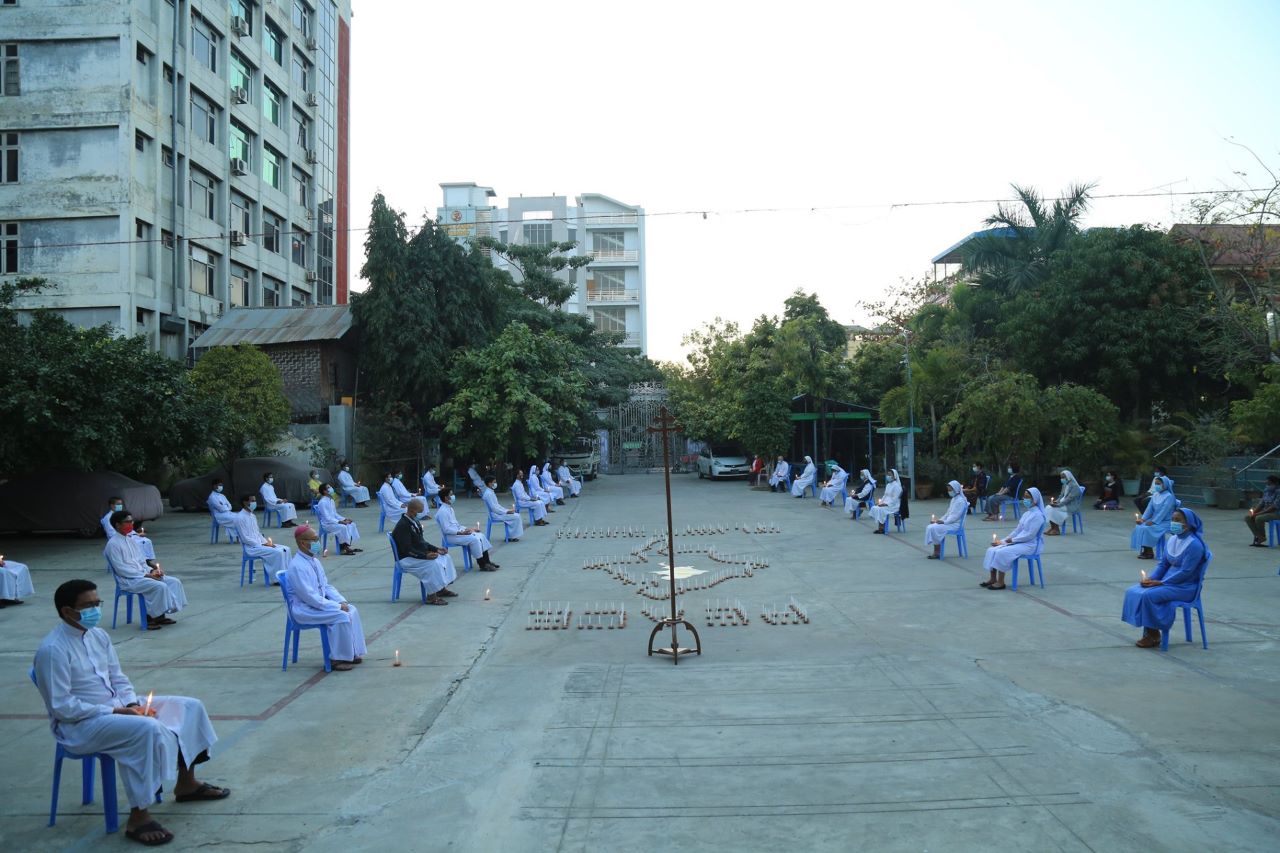
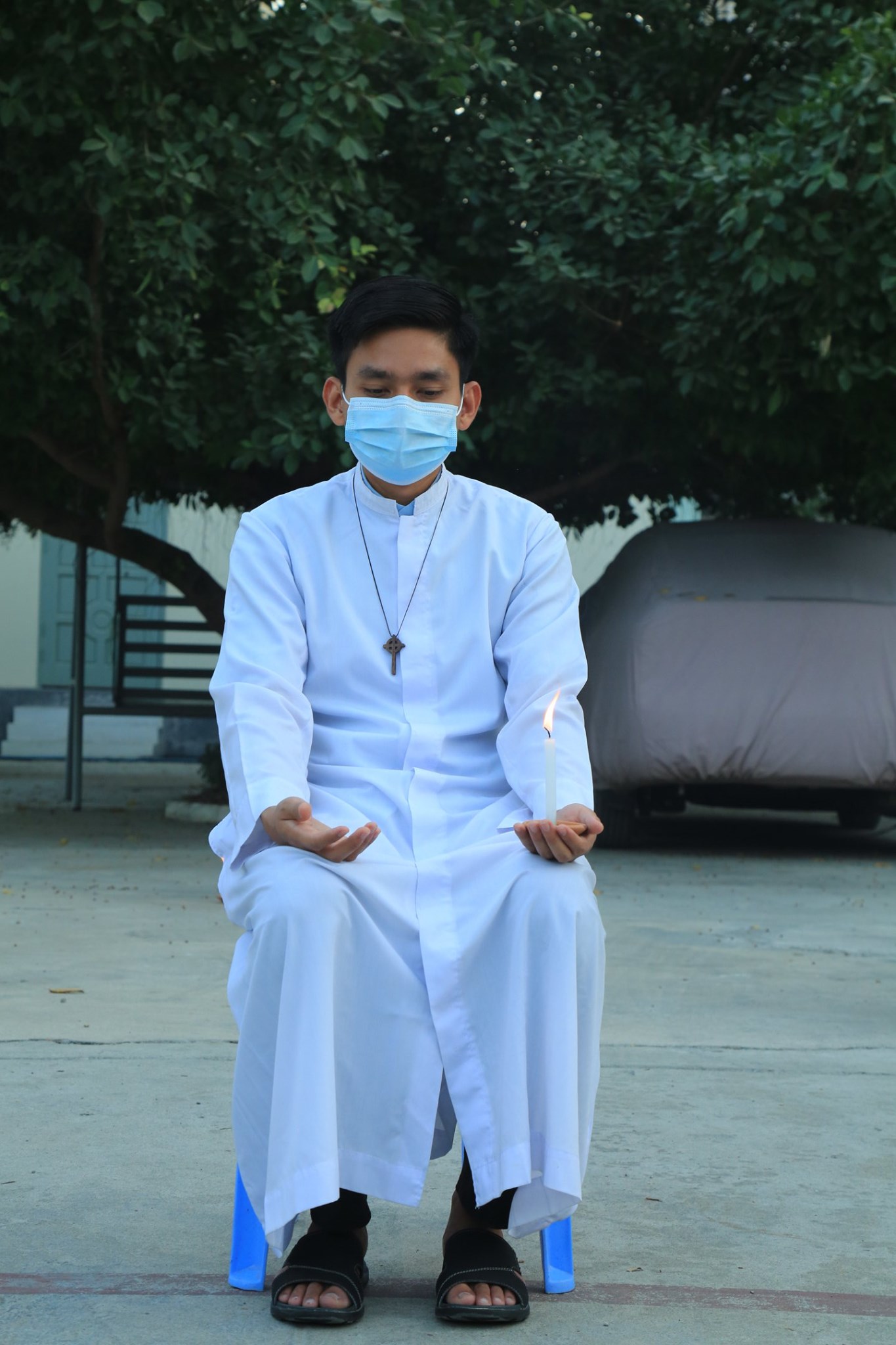
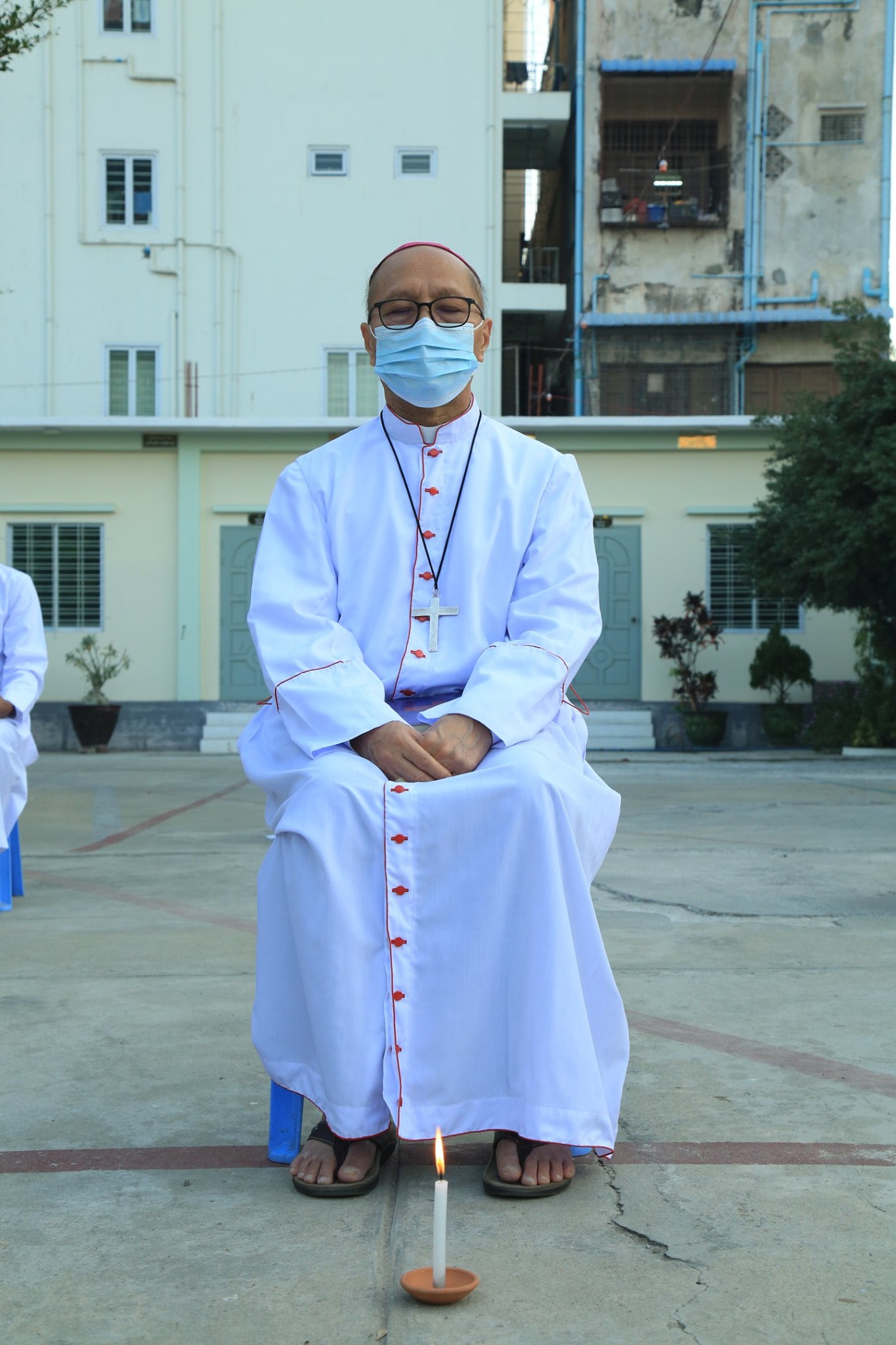
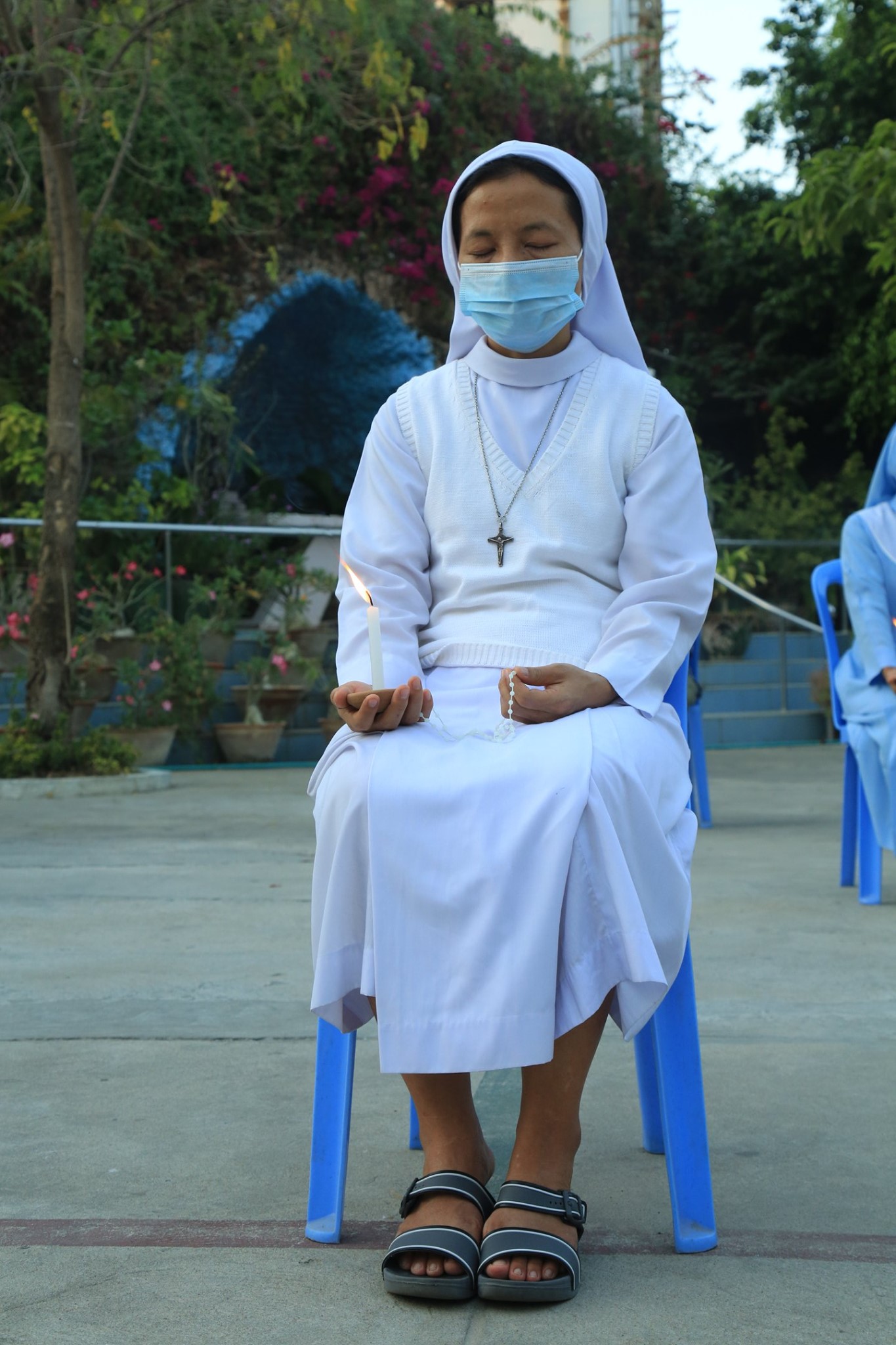
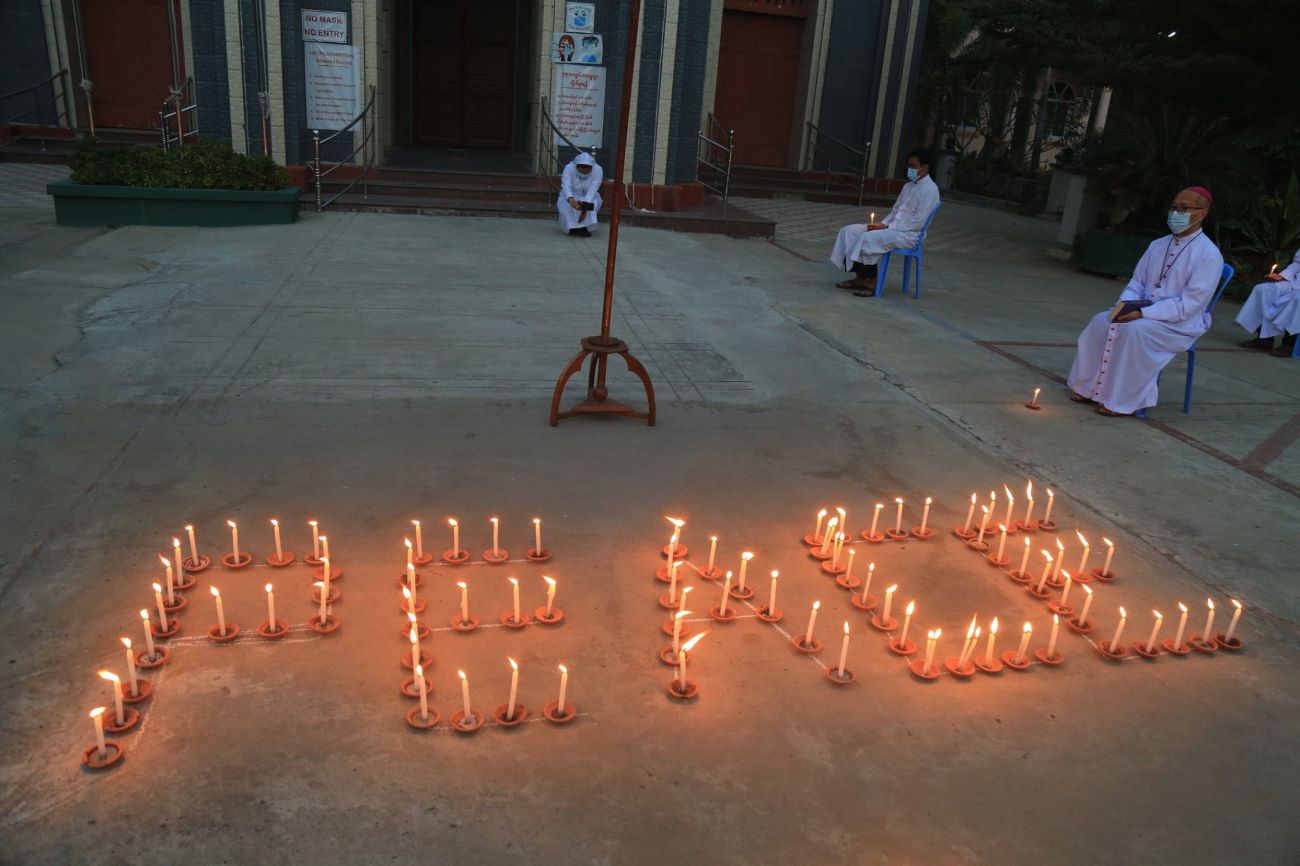
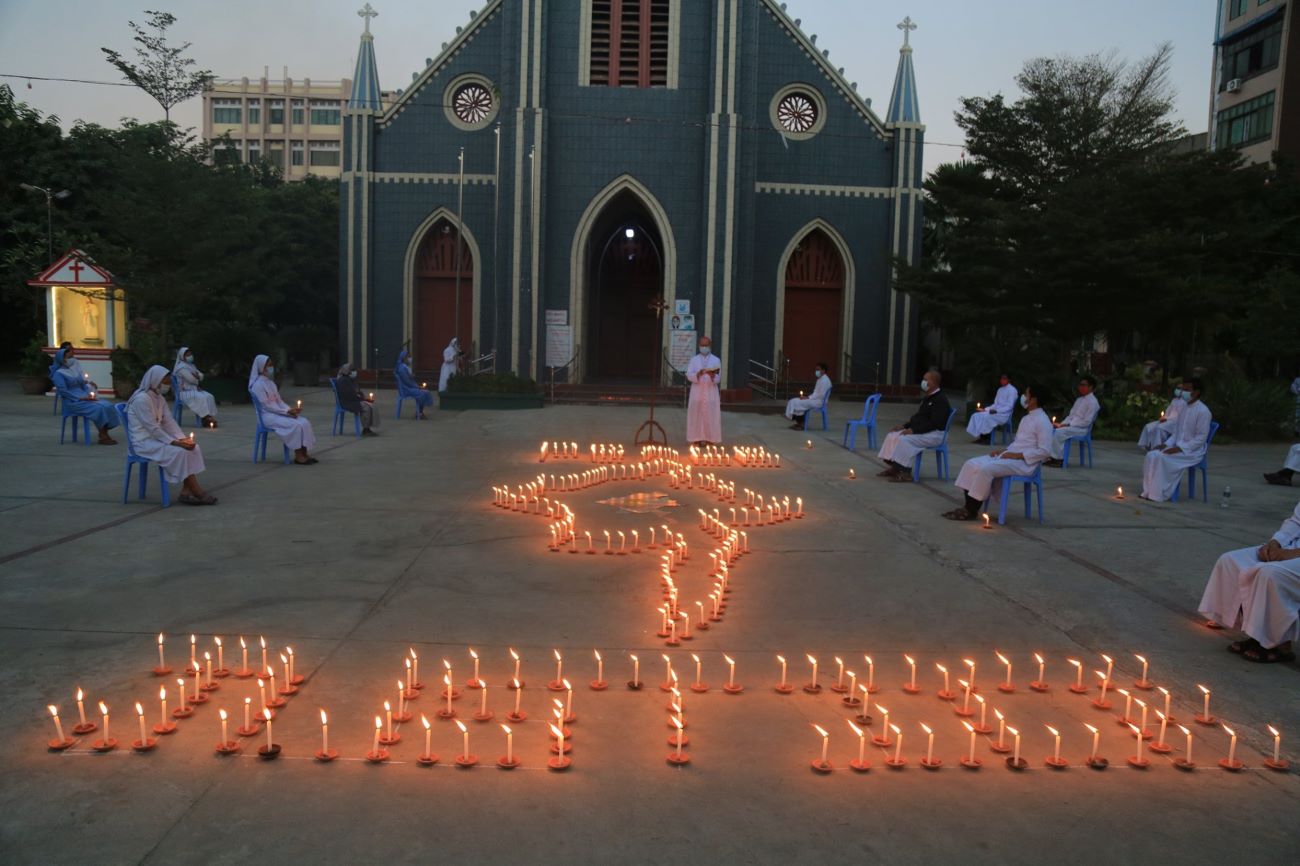

.png)










